In May 2011, they left behind the suburbs of Melbourne and turned their lives upside down, embarking on a journey across America to learn from ethical farmers. They returned home with the ambition to create a beacon farm where food sovereignty and degrowth are enacted, demonstrating that it is possible to nurture the land, care for animals, support the community, and grow food in a way that respects the environment, and honours both past and future generations. Today, they raise large black pigs, dairy short-horn cattle, and chickens, while cultivating a wide range of crops across 28.5 hectares of land.
Through SIANI’s third case study of “Amplifying Stories of Agroecology Principles and Practices” (ASAPP) series, we aim to shed light on Jonai Farms as a living, breathing example of what a just, sustainable, and localised food system can look like in practice.
Savouring the world while saving it: the story of Jonai Farms and Meatsmiths
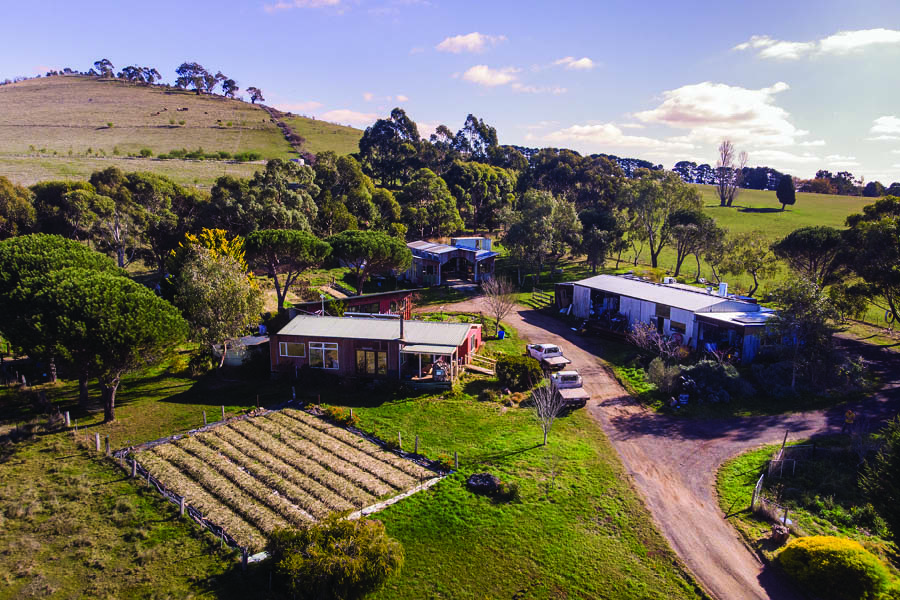
Aerial view of Jonai Farm. © Jonai Farms & Meatsmiths
Jonai Farms and Meatsmiths is a family farm located on unceded Dja Dja Wurrung country, Central Highlands, Victoria. The Jonai family (Tammi, Stuart, Oscar, Antigone & Atticus Jonas) grew tired of choosing between saving the world and savouring it, so they figured out a way to do both.
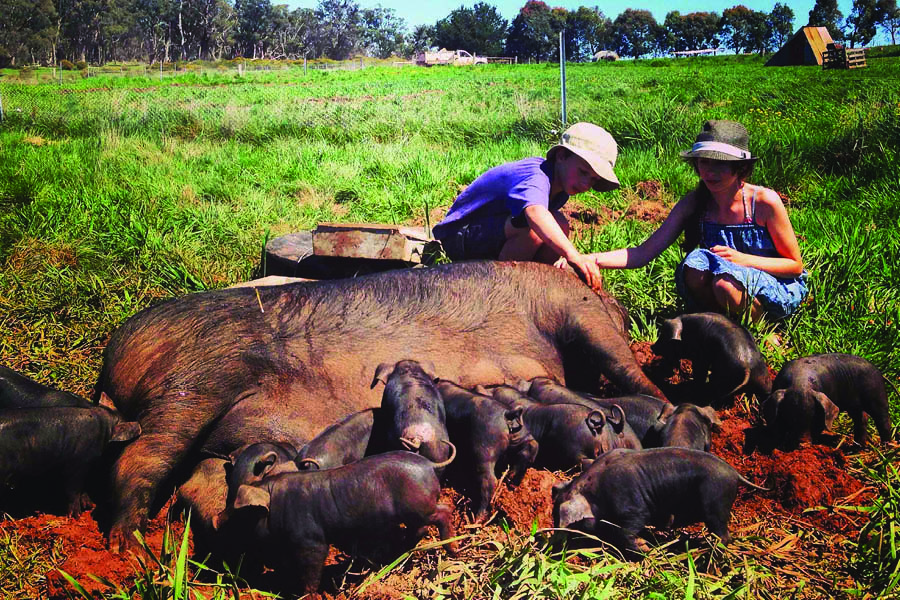
Sow with her piglets. © Jonai Farms & Meatsmiths
Landsharing as decolonial practice: Redefining relationships with land
It all starts with land and the recognition that Jonai Farms holds title to unceded sovereign Djaara land. Adopting a decolonial stance, they have a rent-free landsharing agreement with Tumpinyeri Growers to share resources, labour, and community, while actively working to break down power imbalances and foster equitable relationships through integrated small-scale enterprises. This partnership includes a local bartering system where vegetables are exchanged for meat, creating a sustainable balance between fertility producers (pig manure) and fertility users (market gardeners). Tammi and her family are dedicated to reconciling non-Indigenous and Indigenous farming practices while addressing the complexities of ecosystem health in a post-colonial context.
One example of Tammi’s commitment to reparation is sharing land with a First Nations farmer and learning from Josh, a proud Ngarrindjeri and Narrunga man at Tumpinyeri Growers, how Indigenous and non-Indigenous food systems can work in harmony. Tammi often reflects on the interconnectedness of ecosystems, which she sees symbolised in her experience with quandong and tagasaste seeds. While the quandong, native to South Australia, usually requires a nurse plant like blackwood, it can also thrive with tagasaste, an exotic species. For Tammi, this illustrates how Indigenous and non-Indigenous food systems can coexist and support one another, fostering mutual growth instead of competing for resources.
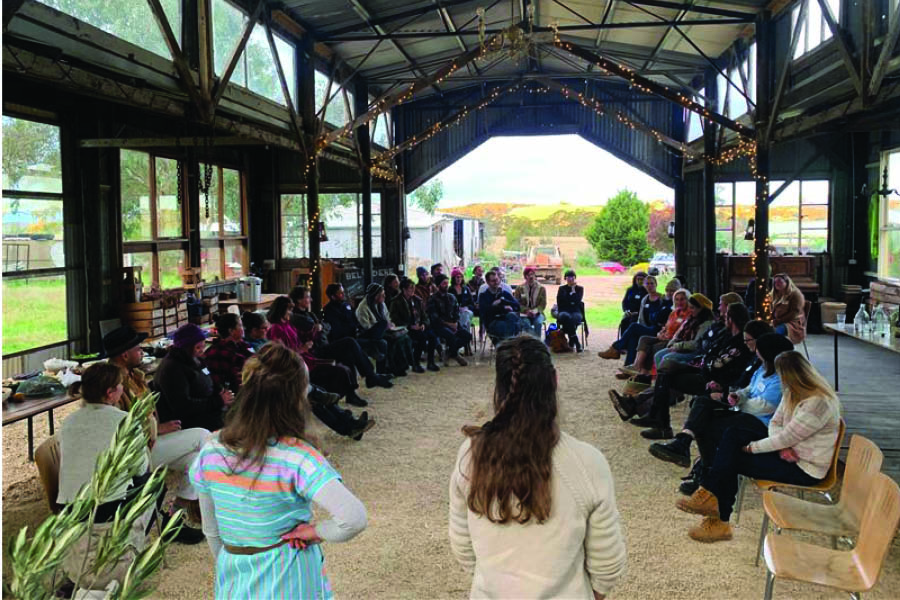
Speed dating for land sharing. © Jonai Farms & Meatsmiths
Reclaiming independence: Building self-sufficiency outside the system
Jonai Farms is deeply committed to self-sufficiency, producing everything in-house or in close collaboration with the local community. In 2013, they made history as the first farm in Australia to crowdfund the construction of a licenced butcher’s shop, followed by a licenced curing room and commercial kitchen in 2014. This enabled them to offer farmstead cured meats, charcuterie, bone stocks, and lard-based soaps, all crafted locally and independently from corporate systems, creating a zero-waste, nose-to-tail operation.
Beyond fostering their own autonomy, Jonai Farms actively shares this knowledge with other smallholders to empower them in their farming practices. Tammi, for example, offers support to fellow farmers by sharing her experience in building an abattoir, navigating bureaucratic processes, and understanding government regulations, which is particularly vital as corporate abattoirs close across Australia, jeopardizing farmers’ livelihoods and access to ethically grown food.
The farm also facilitates agroecology dialogues, free of charge, creating a space for mutual learning among local farmers, including those transitioning to agroecological methods. These sessions foster two-way exchanges, building strong connections and networks that allow farmers to continue their agroecological journeys together. In addition, Jonai Farms participates in the Agroecology Roadshow, an initiative by the Australian Food Sovereignty Alliance (AFSA), which brings agroecology to the public and encourages communities to embrace and lead dialogues, further strengthening the movement for food sovereignty.
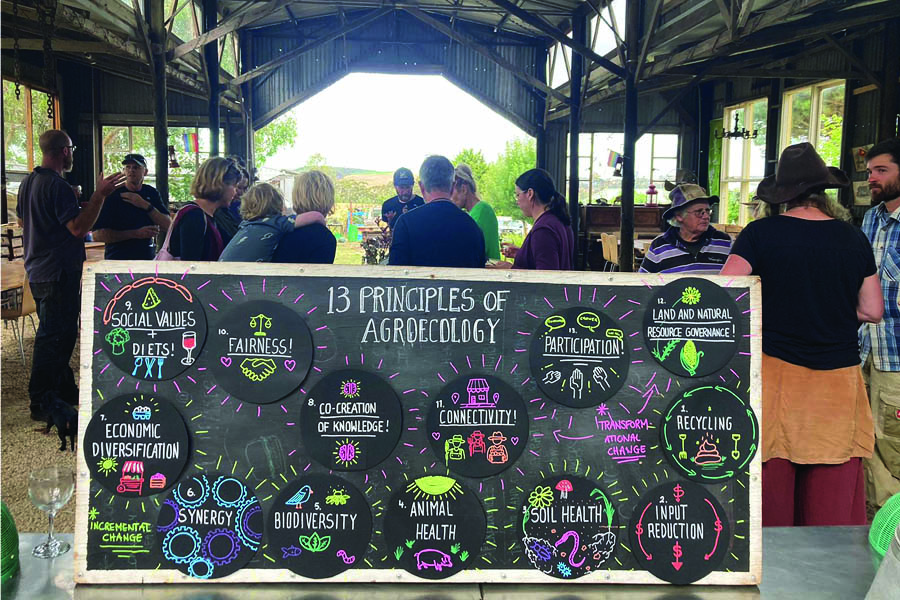
Agroecology Dialogue Day. © Jonai Farms & Meatsmiths
Degrowth in action: Frugal abundance & radical sufficiency
At the heart of Jonai Farms’ vision is the practice of degrowth, where they cultivate a deeply localised, solidarity-based economy. Their Community Supported Agriculture (CSA) model exemplifies this approach, with both producers and consumers sharing the risks and rewards of farming. Prices are determined by use-value, ensuring affordability while covering production and living costs, and emphasizing sufficiency, mindful consumption, and equitable resource distribution. This model fosters resilience, strengthens community ties, and supports broader goals of food sovereignty and social equity. The farm operates on principles of radical transparency, welcoming customers to observe their production methods, and certification comes from the community, not external authorities. In the spirit of mutual aid, they also support CSA members facing financial hardship by offering free food until they can regain employment. Recognising that not everyone can afford locally grown food, Tammi advocates for universal basic income to help people access fresh, ethically produced food. Through reciprocity, barter, and direct producer-consumer relationships, Jonai Farms demonstrates how a food system rooted in solidarity, transparency, and fair exchange can empower both individuals and communities.
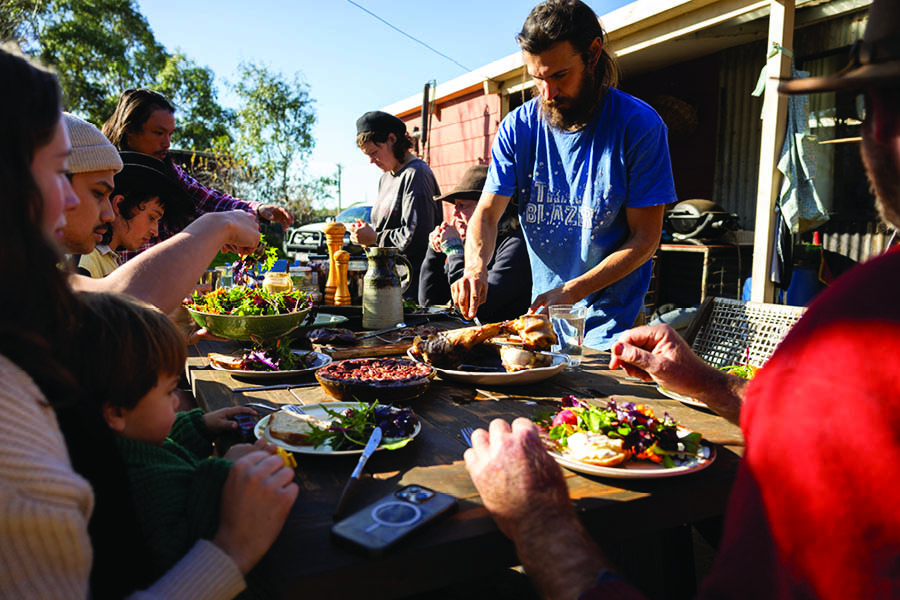
Enjoying ethically grown food with the community. © Jonai Farms & Meatsmiths
Jonai Farms offers a powerful glimpse into a future where food sovereignty, justice, and care for the land go hand in hand—showing that another way is not only possible, but already underway.
Topic:
Related content
6 May 2025
4 December 2024
11 October 2024